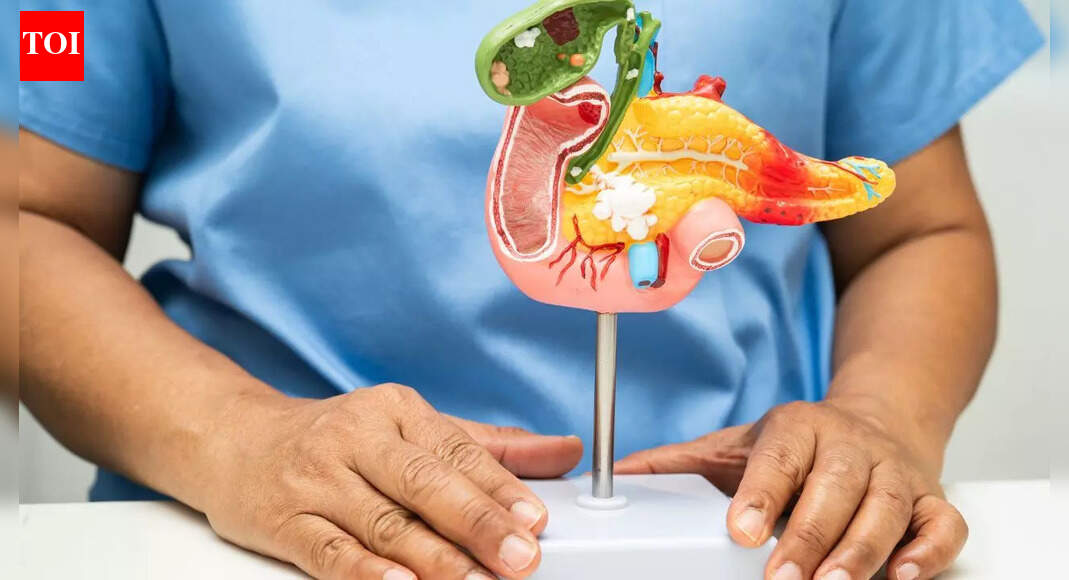
Pancreatic cancer is one of the most aggressive and hard-to-detect cancers, often diagnosed at an advanced stage. While no single food directly causes this disease, research suggests that diet may influence the risk, particularly when it comes to red and processed meats. Regular consumption of burgers, bacon, deli meats, and other processed products may expose the body to saturated fats, heme iron, and chemical preservatives, which could contribute to cellular damage, inflammation, and DNA changes that support cancer development. High-temperature cooking methods like grilling or frying can further increase exposure to harmful compounds. Moderating intake of these foods, maintaining a healthy weight, avoiding tobacco, and limiting alcohol are practical steps to reduce overall pancreatic cancer risk.
How red and processed meats may increase pancreatic cancer risk

High-temperature cooking of meat can produce harmful compounds
The way meat is prepared may impact pancreatic cancer risk. Cooking red or processed meat at high temperatures, grilling, frying, or broiling, can generate heterocyclic amines (HCAs) and polycyclic aromatic hydrocarbons (PAHs), compounds associated with DNA damage in cells. Smoked processed meats are also exposed to PAHs, further increasing potential risk. A study from the PLCO Cancer Screening Trial found that people who ate well-done meat, which contains higher amounts of HCAs and BaP, had a higher risk of developing pancreatic cancer.
Preservatives in processed meat may affect pancreatic health
Processed meats often contain nitrates and nitrites to prevent bacterial growth, improve colour, and enhance flavour. However, these additives can be converted in the body to compounds linked to cellular damage and cancer risk. Limiting intake of processed meats, including bacon, sausages, and deli slices, may help lower pancreatic cancer risk and support overall health. Choosing fresh or minimally processed alternatives is a safer approach.
Heme iron in red meat can increase cancer risk
Red meat contains heme iron, which the body absorbs efficiently and uses to prevent anemia. While beneficial for iron levels, heme iron can also promote free radical formation, unstable molecules that may damage DNA and cells. Some studies suggest that high consumption of heme iron is associated with an increased risk of pancreatic cancer. Balancing iron intake through moderate red meat consumption and plant-based iron sources can reduce potential harm.
Saturated fats in meat may promote inflammation
Red and processed meats are high in saturated fats, which can lead to chronic inflammation. This persistent inflammation produces chemical signals that encourage abnormal cell growth, potentially supporting cancer development. Diets lower in saturated fats and higher in fruits, vegetables, whole grains, and legumes may help reduce inflammation and lower pancreatic cancer risk.
Other foods and habits to avoid for pancreatic cancer prevention
Beyond red and processed meats, certain lifestyle habits and dietary choices can also affect pancreatic cancer risk. Excessive alcohol consumption is a major concern, as it can lead to chronic pancreatitis, a known risk factor for pancreatic cancer. Alcohol itself is classified as a carcinogen, so moderating intake or avoiding it altogether is important for pancreatic health. A meta-analysis published in BMC Cancer found that high alcohol consumption, especially liquor, was associated with a 15% higher risk of developing pancreatic cancer. Choosing water, herbal teas, or low-alcohol beverages can help maintain a balanced lifestyle. Tobacco use also significantly increases risk, with smokers facing nearly double the likelihood of developing pancreatic cancer compared to non-smokers. Maintaining a healthy weight is equally important, as obesity is linked to higher pancreatic cancer risk. A diet rich in fruits, vegetables, whole grains, legumes, lean proteins, and healthy fats can support weight management, reduce cravings for processed meats, and promote overall pancreatic and long-term health.While red and processed meats may increase pancreatic cancer risk due to heme iron, preservatives, saturated fats, and high-heat cooking, lifestyle factors like alcohol moderation, avoiding tobacco, and maintaining a healthy weight are also important. A plant-forward, balanced diet, combined with mindful cooking and moderation, provides the best approach to lowering pancreatic cancer risk while promoting overall long-term health.Disclaimer: This article is for general informational purposes only and is not a substitute for professional medical advice, diagnosis, or treatment. Always seek the guidance of a qualified healthcare provider regarding any medical condition or lifestyle change.Also Read: What is the right time to eat yoghurt for gut health, probiotics, digestion, and stronger bones








